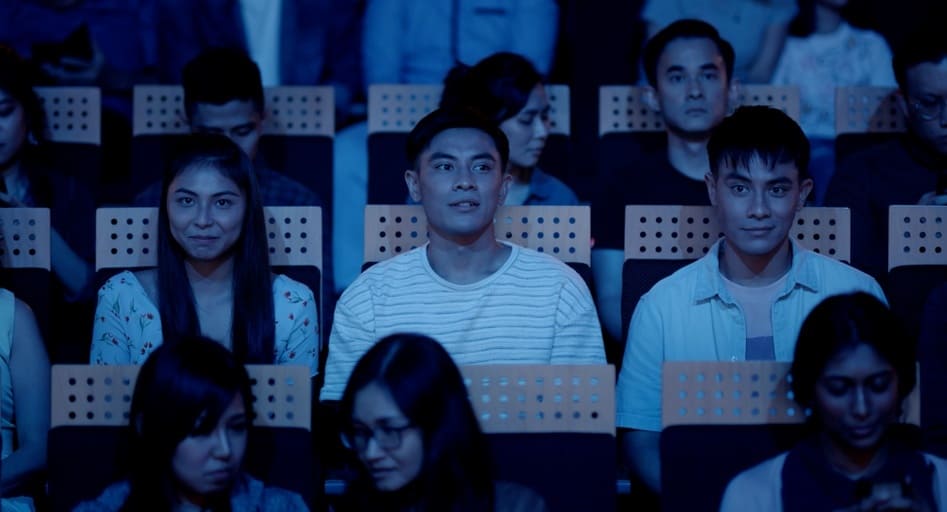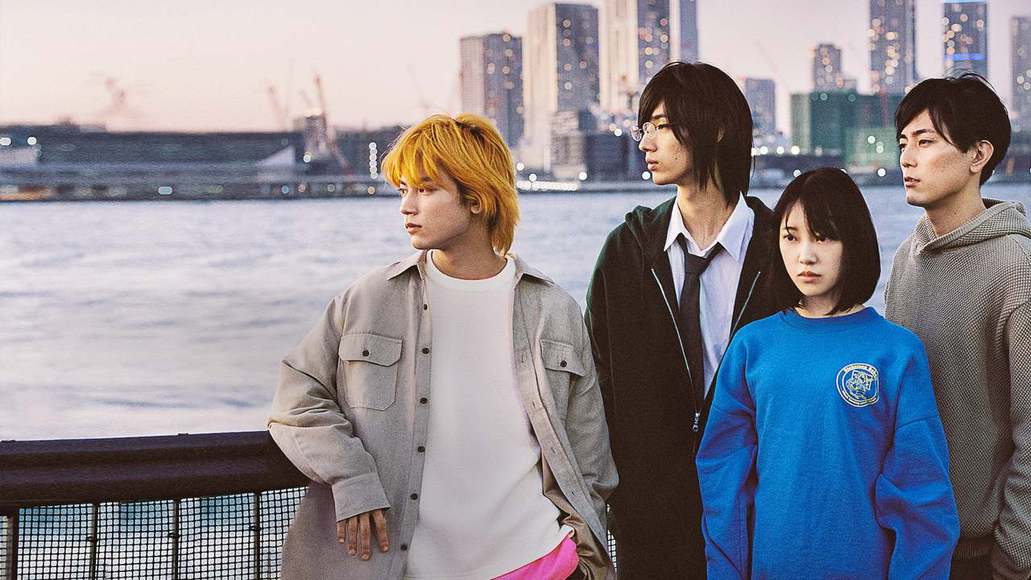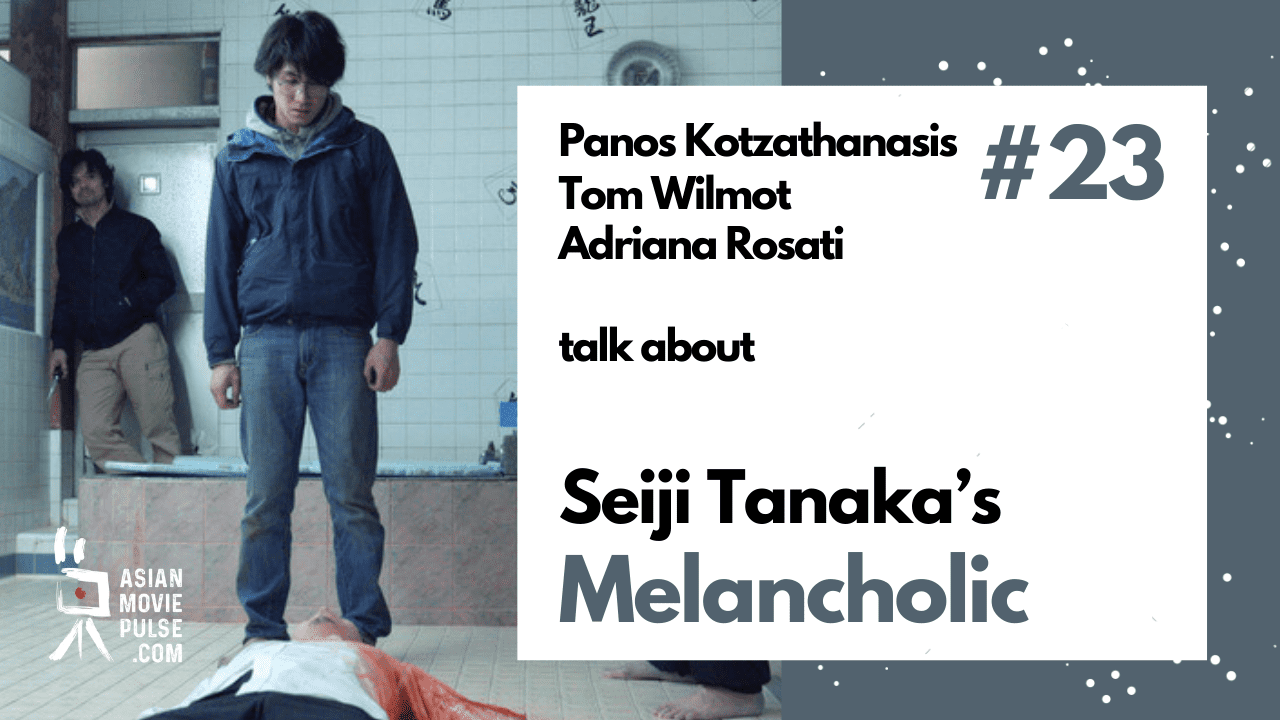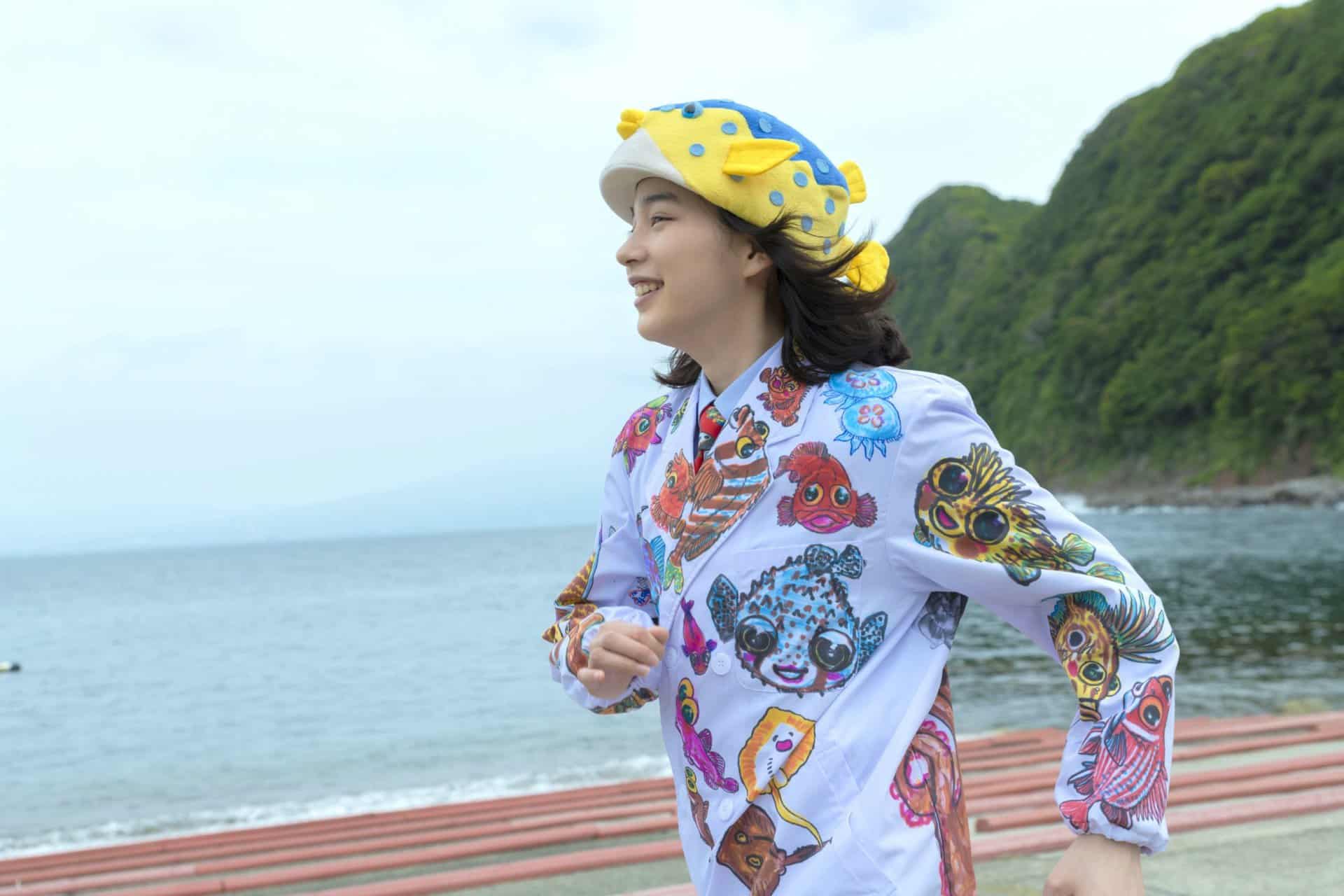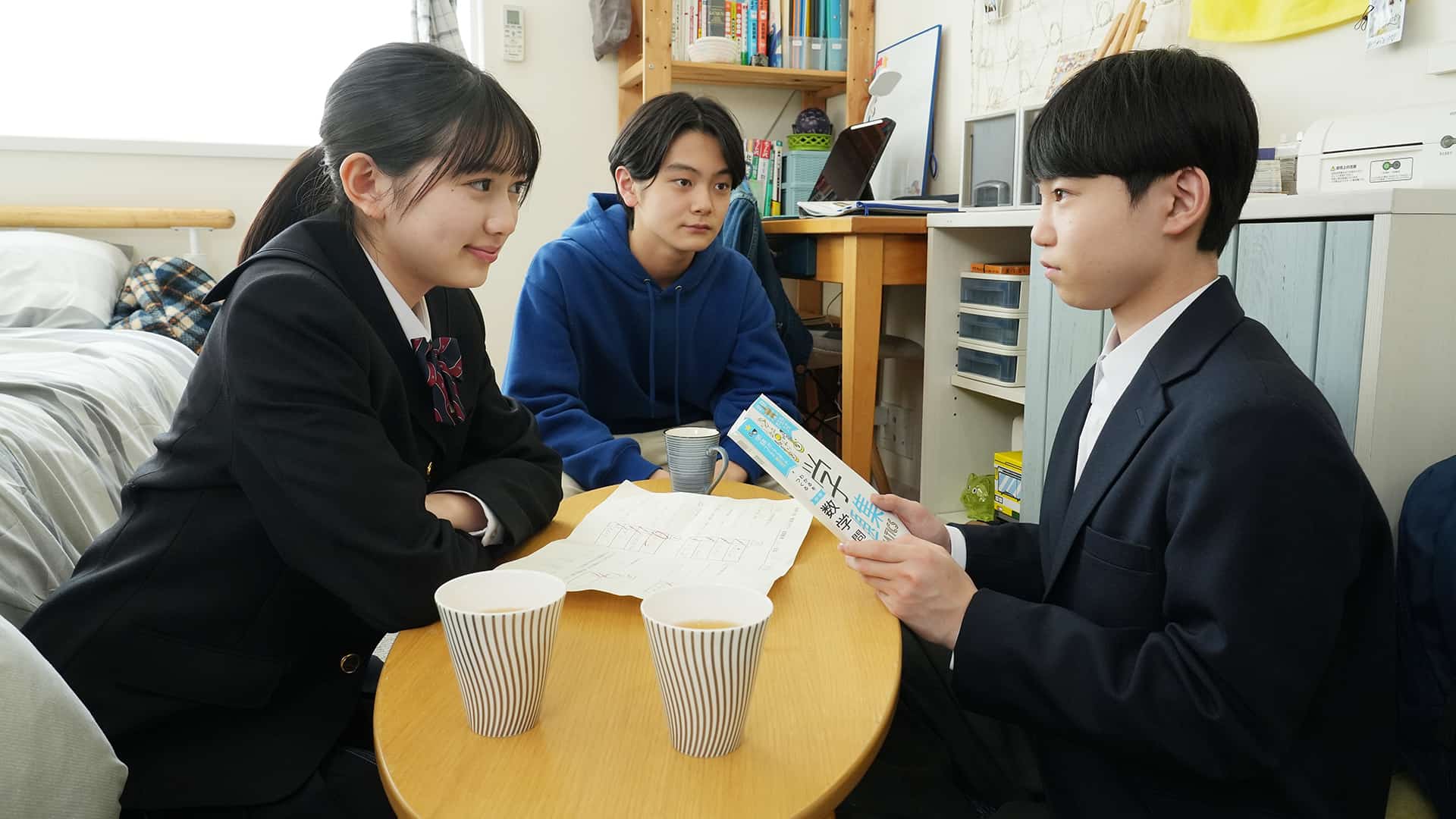Ken Kwek is an award-winning screenwriter, director and playwright from Singapore. His anthology of short films “Sex. Violence. Family Values” (2013) was banned in Singapore but won awards internationally. His feature debut “Unlucky Plaza” (2014) premiered at the Toronto International Film Festival. Ken Kwek is also a theatre director and author of several bestselling children's books. “#LookAtMe” is his second feature film.
On the occassion of #LookAtMe screening at FICA Vesoul, where it picked up two awards, the Young Jury Prize and Audience Choice Award, and during an interview that begun and continued as a conversation in a cafe, we speak about the characters in the movie, the reasons behind its ban, the laws regarding homosexuality in Singapore, yao, televangelists, and many other topics.
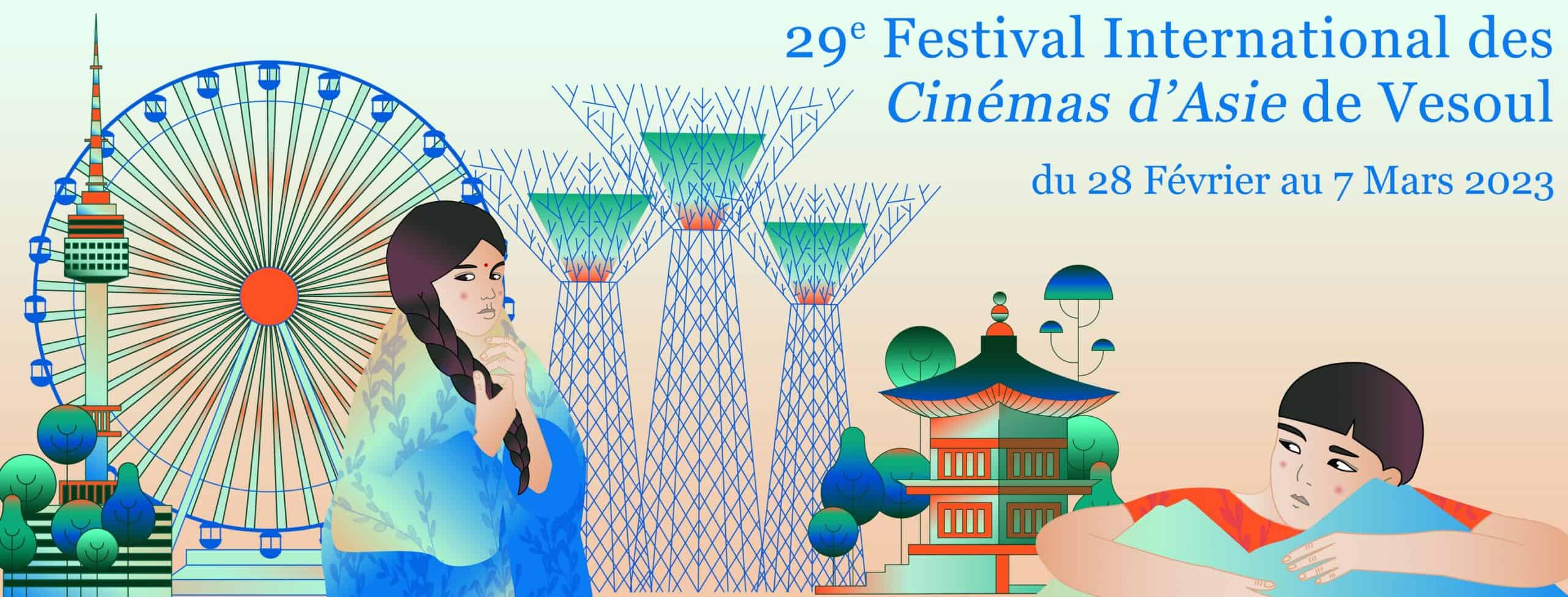
Your film centers on a pair of twins – one straight, one gay – brought up by a single mother. Why did you choose not to have a father in the story?
I think the difficulties that single mothers go through is underappreciated in Singapore, and the emphasis on marriage as a prerequisite for a lot of state benefits makes the lives of single mothers harder than most. Yet for these reasons a single mother is almost always going to be a strong and interesting character. In the case of the mother in my film (played by Pam Oei), she has the additional burden of raising a gay son in a society that is not gay-friendly. But she does so with uncompromising love and humor. We've seen the gay film where the son struggles to come out, or who has a tense relationship with a father who does not accept him. Those stories have been told so I wanted to do something different. I wanted tell a story in which the gay son is unquestioningly loved and accepted in his family, where his sexual orientation is a non-issue and his life is like any other happy teenager. It's only when he comes up against the prejudices of wider society that things begin to take a toll on him and his family.
And what about the lawyer? Is he based on an actual person?
No, the lawyer is a comic character and a humorous tribute to the real-life lawyers who have taken on the difficult and quixotic task of fighting for LGBTQ rights in Singapore. The lawyer is the most satirical character in a film that is, in my opinion, largely unsatirical. Cineastes and critics have rightly pointed out elements of satire in #LookAtMe, but I see the film as a tragicomedy rather than a satire. Unlike my last film (“Unlucky Plaza”, a straightforward hostage thriller), #LookAtMe melds different genres and tones, going from family comedy to prison drama to noir thriller. It's a little risky as an approach to filmmaking, but doubly satisfying when audiences accept it. The response in New York, at all the festivals really, has been great that way. The audiences didn't seem to mind the switches in tone and went along with the ride.
Tell me a bit about the corrupt warden (Sivakumar Palakrishnan) in the movie, how did you come up with the idea for this character?
I think one of the myths about Singapore is that because it's a clean country – both literally as well as in the sense of having clean government – it's a country that's close to perfect. But there's no perfect utopia, and even in the cleanest of countries there are corrupt individuals in society. The warden in my film is a fictional character, there to give the prison scenes tension and a sense of foreboding. And he presides over a prison whose inmates are foils to the protagonist's sense of isolation and frustration. For instance, when Sean is bored and restless, he doesn't know how to pass the time as his fellow inmates do, with activities such as hair-threading.
I didn't understand that, what was that about?
The inmates pull a string from their shorts and use it to thread one another's body hair. They groom each other.
Why?
Because it's super-hot in a tropical prison without A/C, and they're stuck in a tiny cell and bored as hell!
Ah, so that was it.
Yes, this detail I got from interviewing real-life prison inmates. It's not just the big narrative strokes that are inspired by true events. Some of the small, bizarre details are too.
What about the policeman (Rishi Budhrani) who arrests the lead character? You paint him as a frustrated official, who is reluctant in conducting the investigation but has too.
I tried putting myself in the shoes of cops in Singapore who are asked to investigate “offensive” videos from the Internet. If I were such a policeman, I'd feel very put upon, because I'd like to think there are bigger, more serious crimes to deal with in society. In recent years the police have investigated real-life rap artists, activists, lawyers, for making social media posts deemed defamatory or offensive to the feelings of religious groups. But feelings are such slippery, subjective things and it must be so tricky to have to investigate what constitutes “offense” to feelings.
My opinion is that because we live in a time of political correctness, being offended has become like kind of a value. Some people define themselves by how they're being offended, and it's a problem. But in your film, you show that how a person offends can actually be defined by the law. You can go to prison for offending someone.
Offending their feelings.
So that's the case, right?
There are several real-life cases, but the most prominent was in 2015, when a 16-year-old Youtuber was prosecuted and jailed for posting a video deemed offensive to Christians. More recently, a rap artist Subhas Nair was charged for making online comments deemed racially-divisive, on the back of releasing a satirical rap video lampooning racism against Indian minorities. Both these cases made the news all around the world.
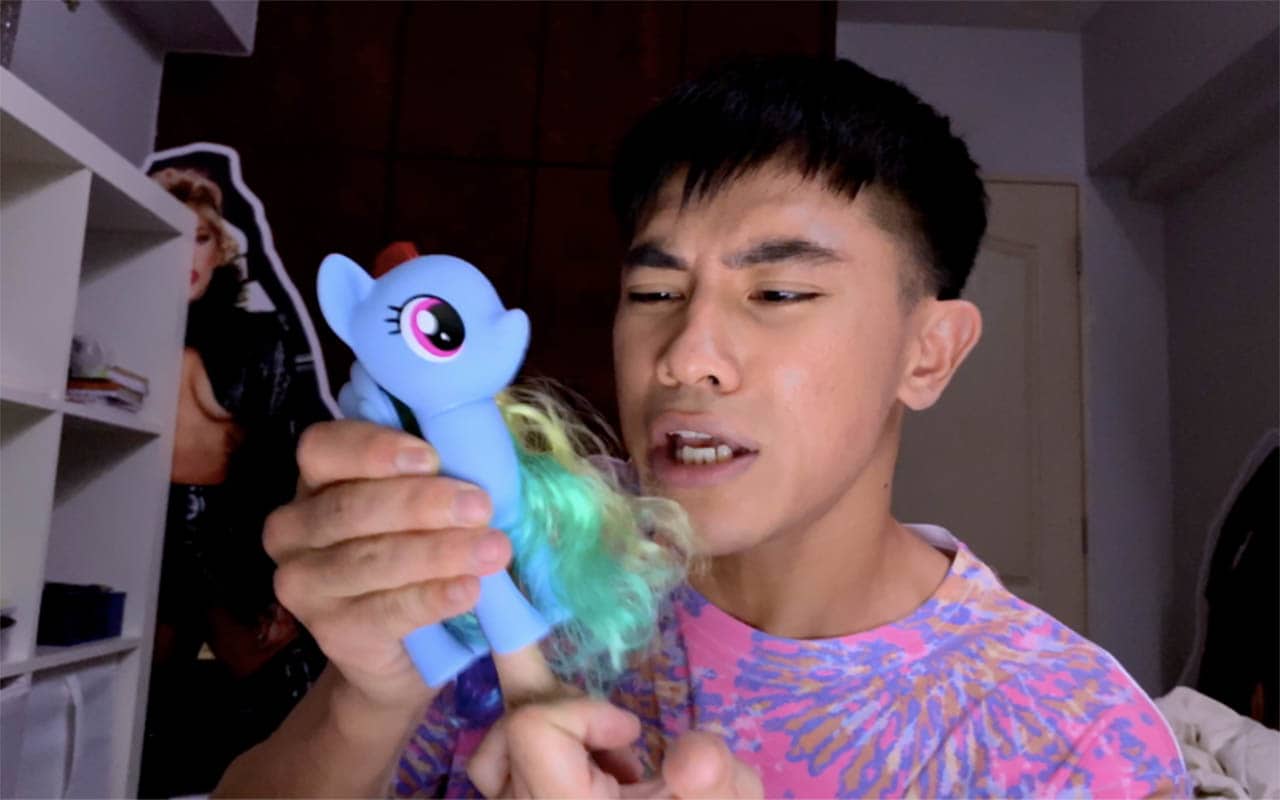
Your film also deals with gay rights. The law that bans homosexuality in Singapore has recently changed, am I right?
Section 377A, the law that criminalizes gay sex, was officially struck off the books in January this year.
What was the law, it was just same-sex marriage or homosexuality?
It's a law that pertains strictly to “acts of gross indecency” between men. Not women, only men. It's strange!
It doesn't make sense.
It's an archaic, anti-sodomy law passed down from the days when Singapore was still a British colony. The British repealed their equivalent of the law in 1967, half a century ago. I think Singapore is a bit late doing it, but better late than never. I'm glad they repealed it. But the repeal of 377A has come with other conditions. There are now new clauses in the law that more or less enshrine the definition of marriage as being between a man and a woman. Other rules have been introduced that greatly curtail the visibility of LGBTQ stories and characters in mainstream culture.
So gay men cannot get married with each other or not yet?
Neither gay men nor women. But like I said, there are other things that are perhaps more problematic, such as the limiting of LGBTQ narratives. So you will not see LGBTQ stories in our TV shows, radio, in our films. And that to me is the bigger issue. If younger LGBTQ people don't see positive and interesting depictions of themselves in the mainstream media, it's harder for them to come out to their parents, to report bullying in schools, to seek help for stresses that come with being discriminated against.
Apologies for talking about censorship again but what else can you not show in Singapore, like nudity, alcohol, sex? What is it that you cannot show?
We have a rating system. PG-13, NC-16, R21. For violence, nudity, sex, profanity, etc. Most of the time if your film has LGBTQ content then you get an R21, even if there is little to no nudity. “Lightyear” was given an NC-16 rating for “overt homosexual depictions”.
The “Toy Story” prequel?
Yes. It was given an NC-16 because there was a kiss between two lesbian parents. So, ironically, a movie intended for children could not be seen in cinemas by most Singaporean primary and high school kids.
Why was your film banned? Was it for its religion theme, that's something you don't touch?
Yes. If you do write about the film being refused even an R21 classification, you should read the full multi-ministry statement issued by the Singapore government.
(You can check the statement by clicking here)
But you shot the film in Singapore?
Yes.
Check the review of the film
When you were shooting, did you have an idea that you would get banned again, after Sex.Violence.FamilyValues? Or do you not think about this stuff at all?
I try not to think about it. I mean of course I know what my country is like. I have an inkling but I can't practice my craft if I let these things interfere in the process of creating stories. So you know I just make the film that I want to make. I don't censor myself. It's not my job to censor myself.
In general, what you said about this system that Singapore has, does it work for its citizens? I know it's the richest country in the world, it's the most expensive. I'm from Greece and the system in the Balkans, it doesn't work. You find dead-ends all the time, when you want to do something, like build a school or hospital. The system that Singapore has, would you say that it works?
As a citizen, do I think that Singapore is well run and the standard of living is high? Do we have a good health-care system compared to the rest of the developed world? Yes. Do I feel that we have a generally good education system? A good public transportation system? Definitely. You know there are good things about my country that I love, for sure. But in terms of making movies, creating art, our job is to tackle the difficult subjects, the taboo themes. It would be a very boring movie if I made it about a great health-care system. “Great Healthcare System.” Nobody would watch that film.
Maybe…
Except you, ‘cos it's your job!
Maybe I would ask the Health Minister of Greece to go and watch it. (both laugh)
Tell me a bit about how you work with yao. He was the actor who played both twins, yes?
Yes. Yao is a tremendous actor. How I worked with him was to put him through a rigorous rehearsal process in a theatre studio. He would bring his own ideas about how to subtly delineate and perform the two characters. More importantly, I had yao work with another professional actor who was his body double. This actor was Shane Mardjuki, a good friend and long-time collaborator. In fact, it was Shane whom I first had in mind to play the twins. The first draft of the script was written with Shane's improvisations. I'd give him a few topics and ask him to sit in front of a computer and riff on those topics, as if he were creating YouTube videos. Then a few years passed and by the time I'd raised the funds to start shooting the film, Shane was in his late 30s and too old to play a teenager. But along the way I'd gotten to know yao and knew he would also be superb. Not only that, he would have the benefit of acting with a body double who deeply understands both characters too. So that's what made the performances sparkle, not only that yao is an extraordinary actor, but that he had an extraordinary double in Shane.
So you developed it like that, Shane would play the other role every time?
Yes. Then they would change, switch their clothes, their make-up, and go again.
Was it difficult for yao?
I think he would tell you the performances were not difficult per se because Ricky and Sean Marzuki are very different characters, with different personalities and narrative arcs. The greater challenge was the technical stuff, hitting the same marks for every take, making sure everything looks right for continuity, etc. I didn't have a huge budget for special effects, so I had to sell the illusion of the twins with very old-fashioned techniques and camera tricks. I'm pleased by the fact that audiences always think that I had a pair of twin actors to play the twin brothers.
What about the actor who plays the priest, he's famous in Singapore right?
Yes, his name is Adrian Pang, I've worked with him on a lot of projects. His scenes as Pastor Josiah Long were not easy to shoot because they were often huge set pieces, to match the bigness of his character. He lives in an outsized mansion, he owns a yacht and a Rolls Royce, his sermons are like a rock concert. To recreate the church of Pastor Long is to look at a very specific strain of Christianity in Singapore. Not all Christians practice in this way, but I was fascinated by this particular style of preaching because I never saw it in Singapore when I was growing up. It was only after I returned from university (in the UK) that I noticed these megachurches with thousands of congregants attending each sermon. It was visually fascinating to me. Yeah, I thought it would be quite cinematic.
Like TV evangelism in the US. It's like that I guess?
Yes, it's a Joel Osteen-style of Christianity that has its roots in American Evangelism.
And they are also very rich, these guys?
A number of them, sure.
Why? What's the appeal? Is it a combination of good marketing and religion? I think if you are like a normal person, you would see a buffoon saying whatever comes to mind, but so many people flock to this and even give their money. Why do you think that happens?
I don't know about “buffoonery”. One man's fool is another man's sage. I think all humans search for meaning in their own way, and this is just one out of many understandable ways in which people seek out meaning. This is what a lot of people commit to on their Sunday mornings. As an outsider I find it fascinating. But some of it is also disturbing – for example, if the pastor is homophobic and preaches his homophobic views aggressively. When they do that, it becomes a problem, because they have an audience that numbers in the tens of thousands. But it also makes for an interesting problem to explore cinematically.
And how do you search for meaning in life?
I make movies. It's not the easiest way to find meaning in life. But yeah, that's the short answer, and it's the true answer. I don't think I'll be the only filmmaker to tell you that that's how we make sense of our lives
